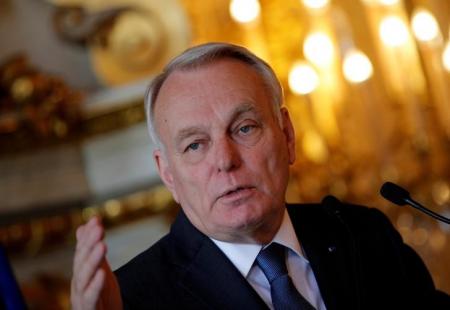France and Mali on Friday ruled out any talks with jihadist groups responsible for repeated attacks on Malian and foreign forces, rejecting calls to bring them to the negotiating table.
A peace conference in Mali last Sunday called for talks with the leaders of two violent Islamist groups. Militants linked to Malian jihadist Iyad Ag Ghali have claimed dozens of attacks on Malian, United Nations and French troops operating in Mali’s desert north.
“They are terrorists,” France’s Foreign Minister Jean-Marc Ayrault told reporters. “How do you negotiate with terrorists? This is a fight with no ambiguity.”
Abdramane Sylla, Mali’s minister for the diaspora and migration who stood in for the absent Foreign Minister Abdoulaye Diop, was equally adamant.
“I think it’s absurd to negotiate with these terrorists, especially when they’ve just … declared war on 11 countries,” he said.
Ayrault and Sylla spoke after they and German Foreign Minister Sigmar Gabriel had met with Mali’s President Ibrahim Boubacar Keita.
Ayrault said the jihadist Ag Ghali had claimed an attack in southern Mali that killed a French soldier on Wednesday.
Ayrault and Gabriel were earlier in the northern Malian city of Gao, where they visited French and German troops stationed there and attended a tribute to the French soldier.
Former colonial power France intervened in 2013 to push back al Qaeda-linked militants who had hijacked an ethnic Tuareg uprising to seize northern Mali the year before.
It has since deployed some 4,000 soldiers, known as the Barkhane force, across the region to hunt down Islamists.
That intervention paved way for the United Nations to deploy its more than 10,000-strong MINUSMA peacekeeping force to the West African state at a cost of about $1 billion a year.
Then, in 2015, a Malian peace pact was signed that was supposed to draw a line under the conflict pitting nomadic Tuaregs in the desert north against a government seated in the south that had turned Mali into a launch pad for global jihad.
Earlier, in Gao, Ayrault said that he was confident that the United States would not seek to abandon the U.N. peacekeeping mission in Mali.
“It doesn’t mean that just because you are looking to make savings that you abandon these peacekeeping missions,” he said.
“As far as Mali is concerned … it’s clear that it’s an indispensable mission.”
Source: Reuters



